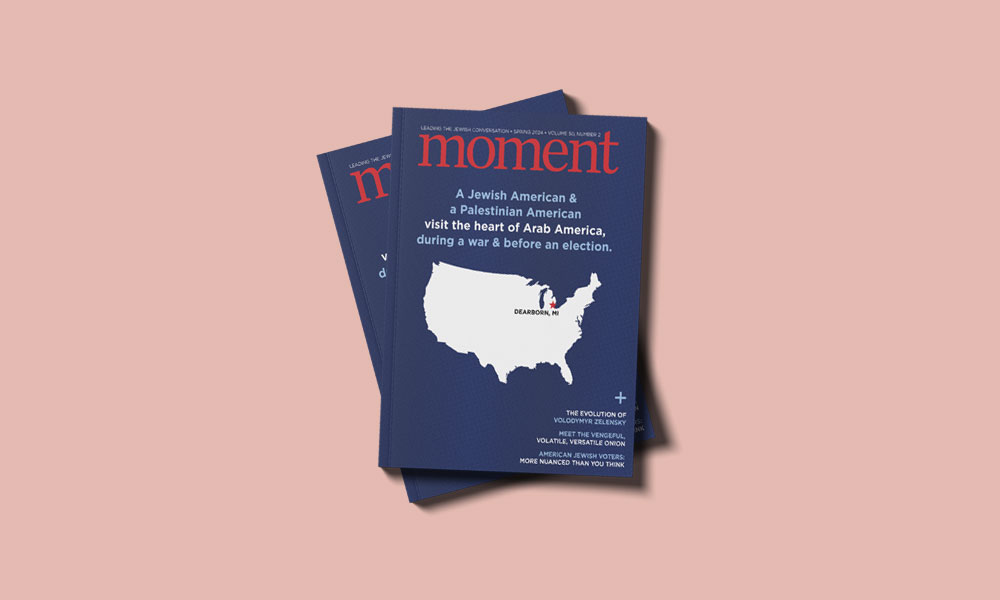DOIKAYT IS HERE, THERE ARE EVERYWHERE
Moment Deputy Editor Jennifer Bardi’s Jewish Word column, “Doikayt: The Jewish Left Is Here” (Jewish Word, Spring 2024) explored how young, progressive Jews in the United States were adopting a diaspora awareness that includes criticism of Israeli policy and an embrace of the Bundist movement of the early-mid 20th century—which had championed the concept of “hereness” (doikayt) in opposition to Zionism.
The topic, introduced in a short video shared on Moment’s multiple social media platforms, proved popular and provocative. Some commenters on YouTube and TikTok condemned not just the concept of hereness but the Bundist project as a whole. “Actually, I was born in Lithuania,” said @noragutberg, referring to the birthplace of the Bund. “And I know what happened to my entire family—my mother was the only survivor…So, no thank you.”
“Whereas the Bundist movement was a well-respected political movement in early 20th-century Europe,” wrote @saulchapnick1566, “the Bundists were murdered by the Nazis. They had no chance in the world. Zionism is the answer.” @McFluff33 put it in even stronger terms: “By practicing doikayt, one actively cuts themselves off from the Jewish people. Doikayt is not a concept rooted in Jewish tradition but rather a modern invention deliberately created to undermine the traditional Jewish values of nationhood and connection to the Land of Israel.”
Others supported doikayt. “The Bundist perspective makes a lot more sense,” @noisy99 shared. “I am a mixed Indonesian-Australian-German dude, and I have lived all my life in Indonesia. Indonesia will always be home to me while Austria and Germany are mere reminders of my ancestors; I wouldn’t call them home.” Another commenter using the social handle @lulalela542 wrote: “As a Jew, I support this…Our people are stronger together and around the world, not concentrated in a genocidal, segregationist state.”
YouTube commenter @DeborahMiller-cg1ur struck a novel note in invoking doikayt to defend the Jewish state: “The concept of ‘hereness’ gives hope for being at home with peace and contentment wherever you are. It is difficult if a person is a refugee for years seeking a place to settle. The Jews found a homeland in Israel following World War II after wandering for thousands of years. The Bundists would apply this word to the present defense of Israel. The universal concept applies to all peoples’ right to be where they feel at home. It implies staying power and focusing on the present.”




